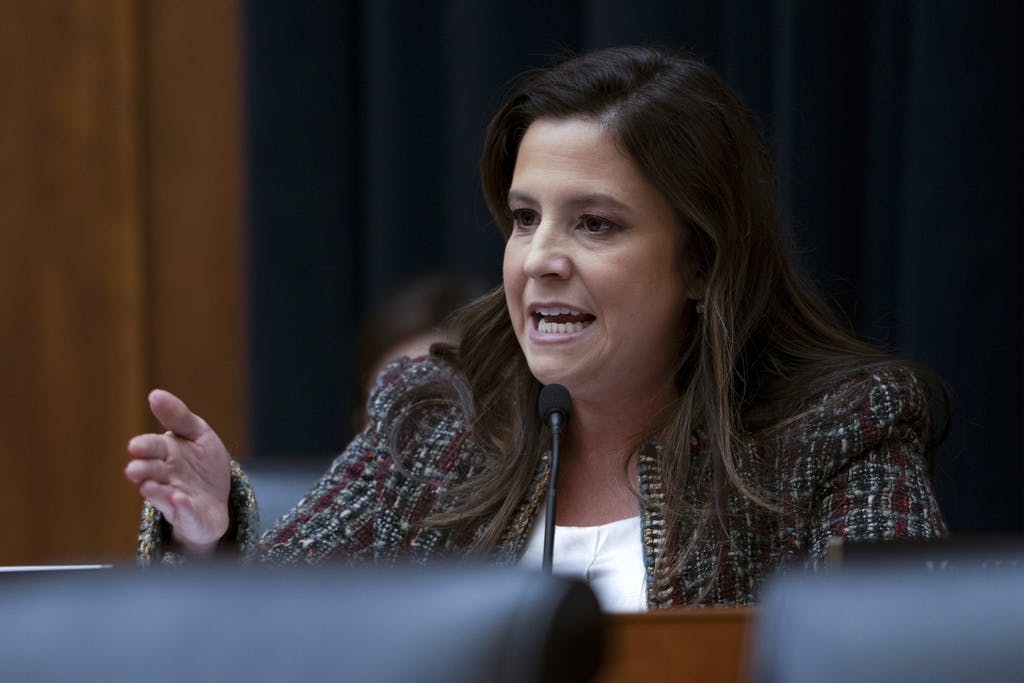Blue State Republicans Dig In on SALT Fight, Threatening To Kill Trump’s ‘One Big Beautiful Bill’
New York suburban lawmakers have been leading the fight to win a tax break for their constituents.

Blue state Republicans aren’t backing down in their fight with Speaker Johnson to get a new tax break for their constituents by raising the cap on the State and Local Tax deduction. The House members have called Mr. Johnson’s offer to triple the SALT cap “insulting.”
Several New York Republicans met with the speaker on Tuesday night as the Ways and Means Committee — the panel charged with writing American tax law — was meeting to work through the amendment process of the new tax reform legislation. They say they walked away unimpressed.
“I’m going to vote no on the bill, and the bill likely won’t pass” if the cap isn’t raised higher, one Long Island Republican, Congressman Nick LaLota, told reporters after meeting with the speaker on Tuesday evening.
The current SALT deduction cap is $10,000 for individuals and couples alike. Last week, the group of lawmakers seeking a higher cap rejected leadership’s offer to raise the cap to $30,000 for those households that make less than $400,000. They called that offer “insulting.”
The core of the SALT group pushing Mr. Johnson for greater tax relief includes a coterie of suburban lawmakers from New York, New Jersey, and California, with the majority of members hailing from the Empire State. Congresswoman Elise Stefanik, Congressman Mike Lawler, Congressman Andrew Garbarino, and Mr. LaLota have been leading the charge, along with Congressman Tom Kean of New Jersey and Congresswoman Young Kim of California.
A fifth New York lawmaker, Congresswoman Nicole Malliotakis, is the only downstate House member supporting leadership’s $30,000 SALT deduction cap. Most notably, only she — not Ms. Stefanik nor Messrs. Lawler, Garbarino, or LaLota — sits on the Ways and Means Committee. Whatever fight happens with the SALT deduction cap will either have to be worked out with the chairman, Congressman Jason Smith, who is already slogging through the amendment process, or with Mr. Johnson himself once the “big beautiful bill” gets to the floor.
With only a three-seat majority in the lower chamber, Mr. Johnson has no room for error in passing President Trump’s “one big beautiful bill.”
Two Republican House members — Congressman Thomas Massie of Kentucky and Congresswoman Victoria Spartz of Indiana — already voted against the previous budget framework that is now being used to craft the reconciliation bill. Estimates have started to come out from government and non-governmental organizations detailing how the bill would likely make the deficit even larger, so those two lawmakers may be prepared to vote no on the legislation.
More than 30 House members recently signed a pledge saying they will not for any bill that is projected to add even one penny to the deficit.
Mr. Johnson and Senator Thune are facing a critical deadline that is a mere two months away. The Tax Cuts and Jobs Act — Mr. Trump’s signature legislative achievement of his first term — is due to expire at the end of the year, but now an even more important threat looms: the debt limit.
Secretary Bessent has said that America is on track to default on its debt obligations by mid-July. In order to lift the limit on America’s credit line on a party-line vote, Messrs. Johnson and Thune will have to get their reconciliation bill to Mr. Trump’s desk in time.
If they fail to do so, then they will be forced to work with Democrats in order to avoid fiscal calamity, which many analysts say could instigate a global recession, or even another Great Depression. If Republicans are backed into a corner and require the support of Democrats in Congress, the opposition party could draw major concessions from the GOP.

